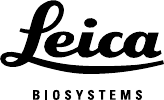
www.LeicaBiosystems.com
© Leica Biosystems Newcastle Ltd
•
NCL- Rev D CEA-2 12/01/2014
General Overview
Carcinoembryonic antigen (CD66e) is a heterogeneous cell surface glycoprotein produced by
cells of fetal colon. Low levels are also found on normal mucosal epithelia of the adult colon
and a variety of other normal tissues. CD66e is encoded by the CEA gene that is located on
chromosome 19. It is a member of the CEA gene family, which in turn is a subfamily of the
immunoglobulin superfamily. Cell adhesion properties are now well recognized for CD66e. It
is believed that the expression of this glycoprotein in conjunction with other known adhesion
molecules will inuence cell-cell interaction.
General References
Sanders D S, Wilson C A, Bryant F J, et al.. Gut. 35 (8): 1022–1025 (1994).
Börmer O P. ISBN 82–7633–014–2 (1992).
Börmer O P. Clinical Chemistry. 37: 231–236 (1991).
Nishi M, Inazawa J, Inoue K, et al.. Cancer Genetics and Cytogenetics. 54: 77–81 (1991).
Börmer O P and Nustad K. Journal of Immunological Methods. 127: 171–178 (1990).
Börmer O P. Journal of Immunological Methods. 121:85–93 (1989).
Roitt I, et al.. Immunology Second Edition 1989.
Ellis I O and Hitchcock A. Pathology. 41: 1064–1067 (1988).
Patz M, Odermatt B, Christen B, et al.. Virchows Archiv A–Pathological Anatomy and
Histopathology. 411 (4): 387–393 (1987).
Thompson J A, Pande H, Paxton R J, et al.. Proceedings of the National Academy of Sciences.
84: 2965–2969 (1987).
Börmer O P. Clinical Biochemistry. 15: 128–132 (1982).




